What, if any, is the effect of the (i) intensity (ii) frequency of incident radiation on the stopping potential in photoelectric emission?
Vs is independent of intensity, but increases with the frequency of incident radiation.
Topper's Solved these Questions
- BOOK - NAVNEET PUBLICATION - MAHARASHTRA BOARDCHAPTER - VERY SHORT ANSWER QUESTIONS EXERCISE - ATOMS, MOLECULES AND NUCLEI8videos
VERY SHORT ANSWER QUESTIONS
- BOOK - NAVNEET PUBLICATION - MAHARASHTRA BOARDCHAPTER - VERY SHORT ANSWER QUESTIONS EXERCISE - SEMICONDUCTORS12videos
VERY SHORT ANSWER QUESTIONS
- BOOK - NAVNEET PUBLICATION - MAHARASHTRA BOARDCHAPTER - VERY SHORT ANSWER QUESTIONS EXERCISE - ELECTROMAGNETIC INDUCTION10videos
VERY SHORT ANSWER QUESTIONS
- BOOK - NAVNEET PUBLICATION - MAHARASHTRA BOARDCHAPTER - SOLVED PROBLEMS-II EXERCISE - Assignments5videos
SOLVED PROBLEMS-II
Similar Questions
Knowledge Check
- Question 1 - Select One
Graph of incident freuency with stopping potential in photoelectric effect is
A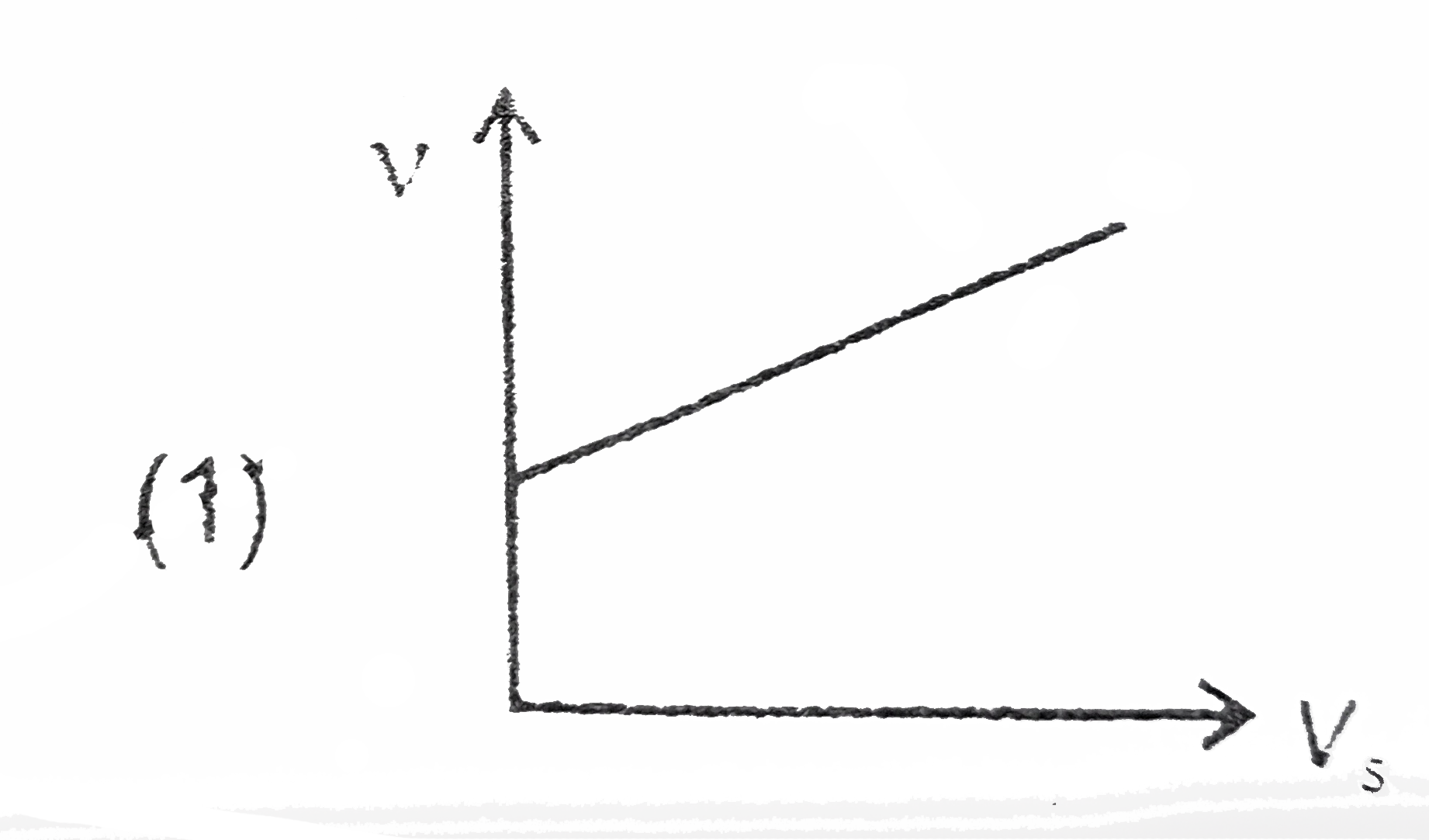 B
B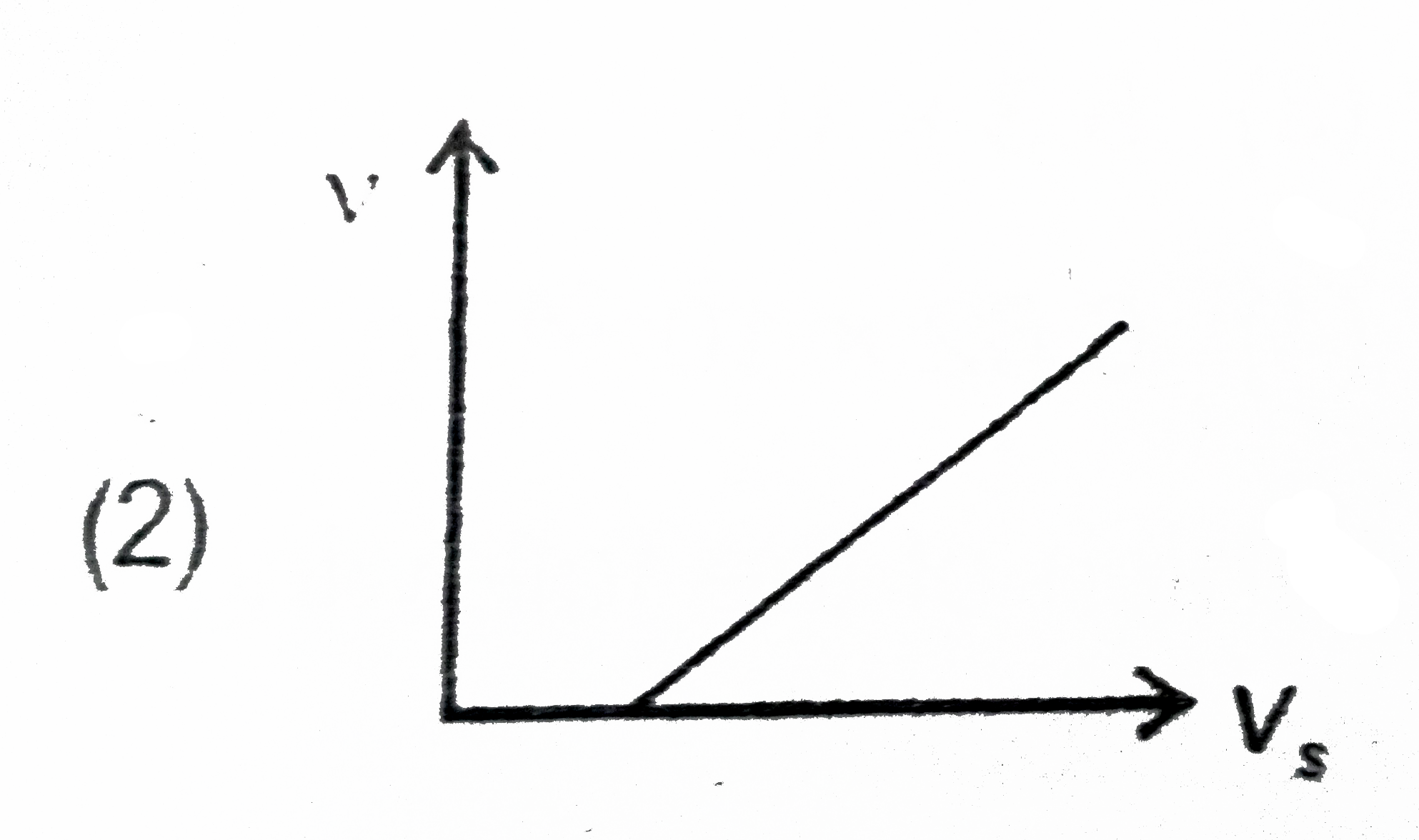 C
C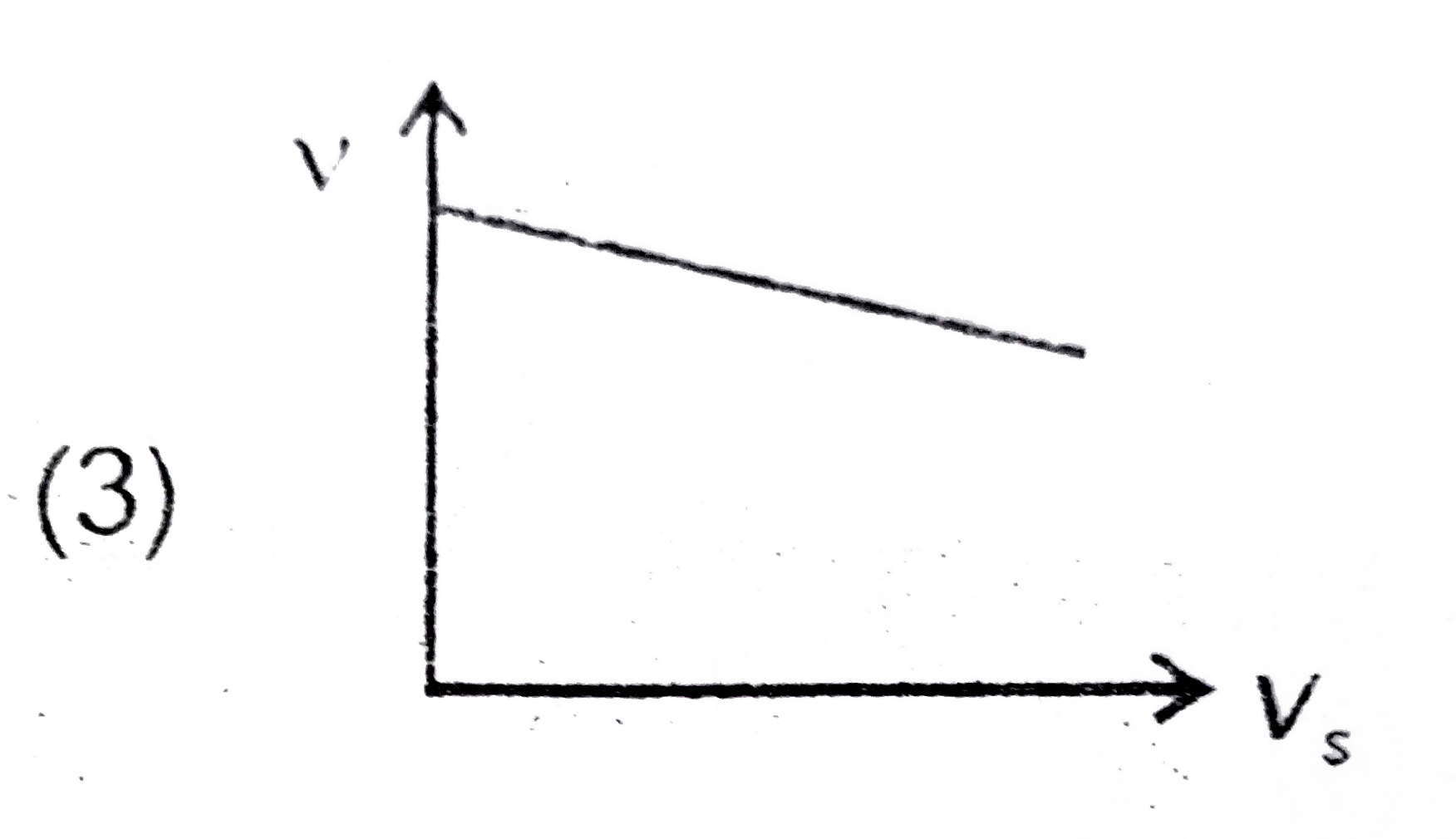 D
D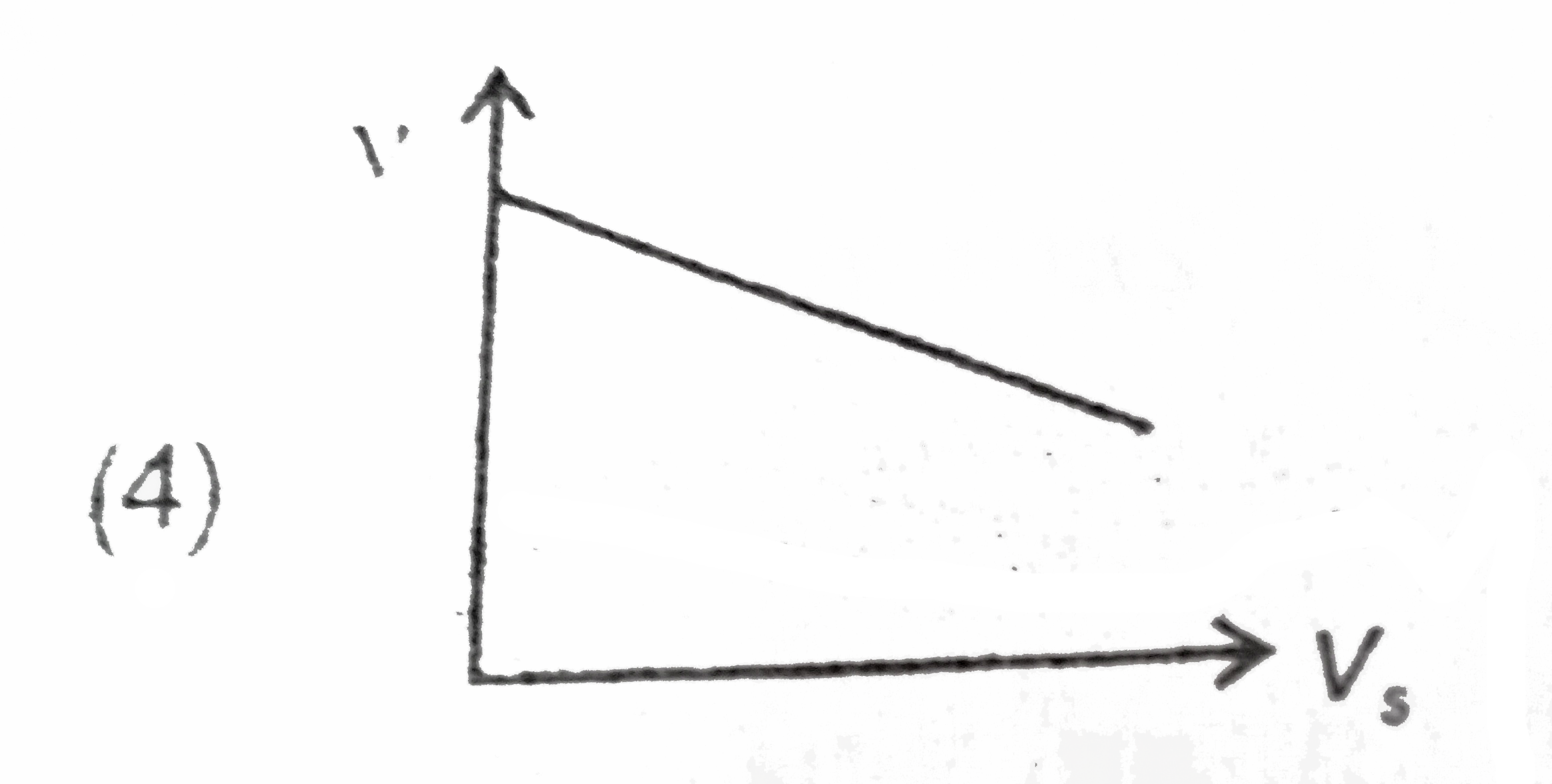
- Question 2 - Select One
Which of the following is the graph between the frequency (v) of the incident radiations and the stopping potential ?
A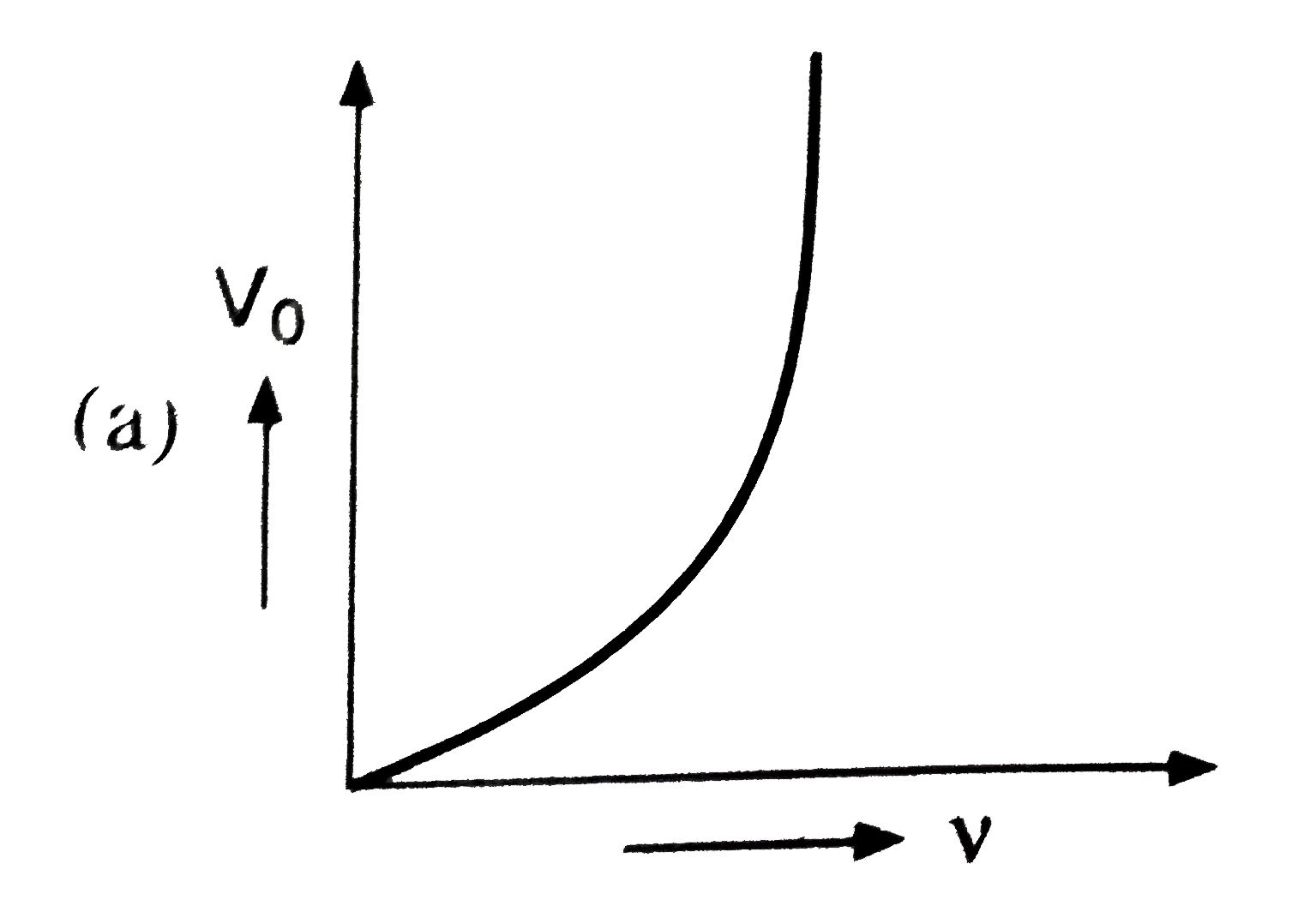 B
B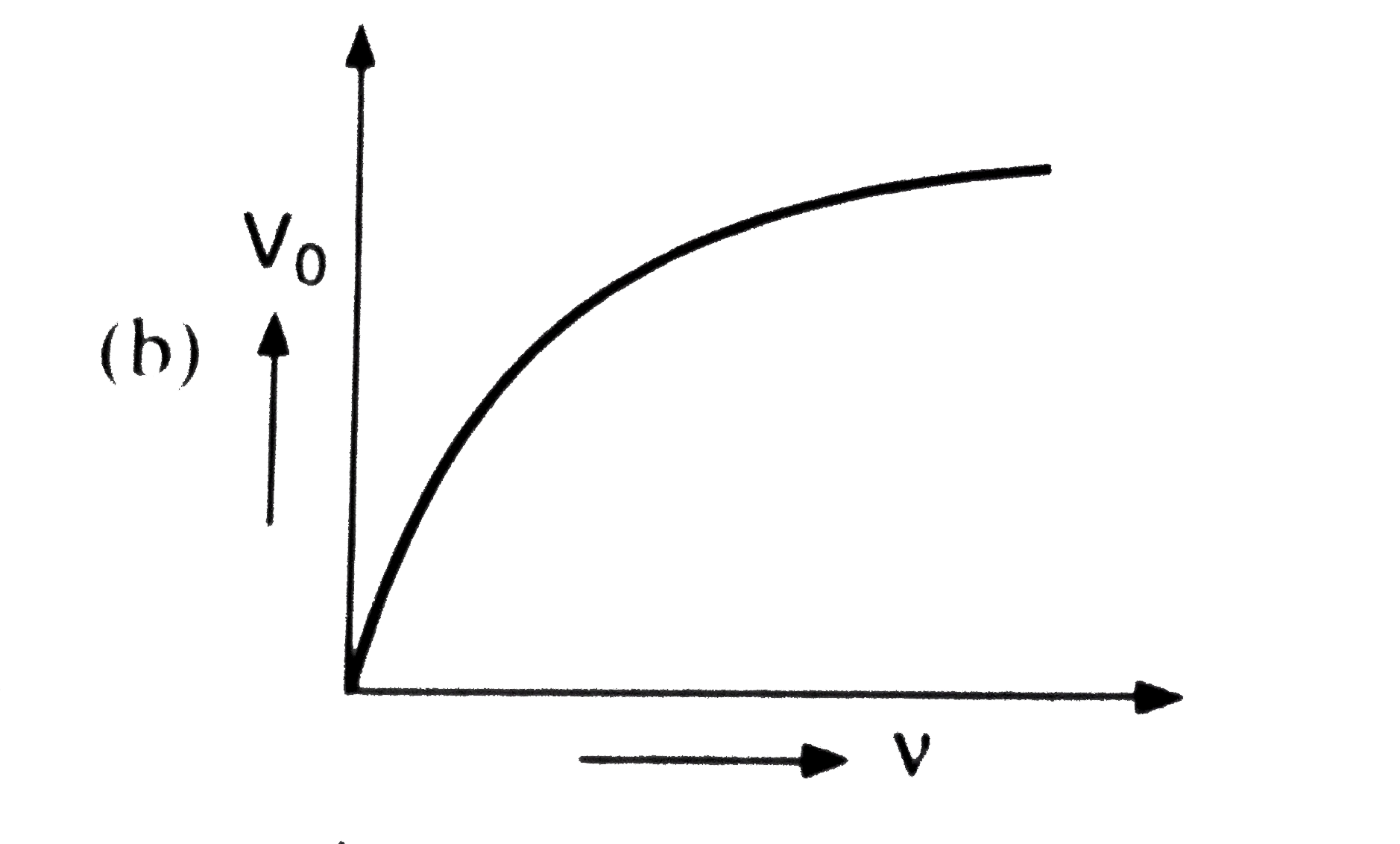 C
C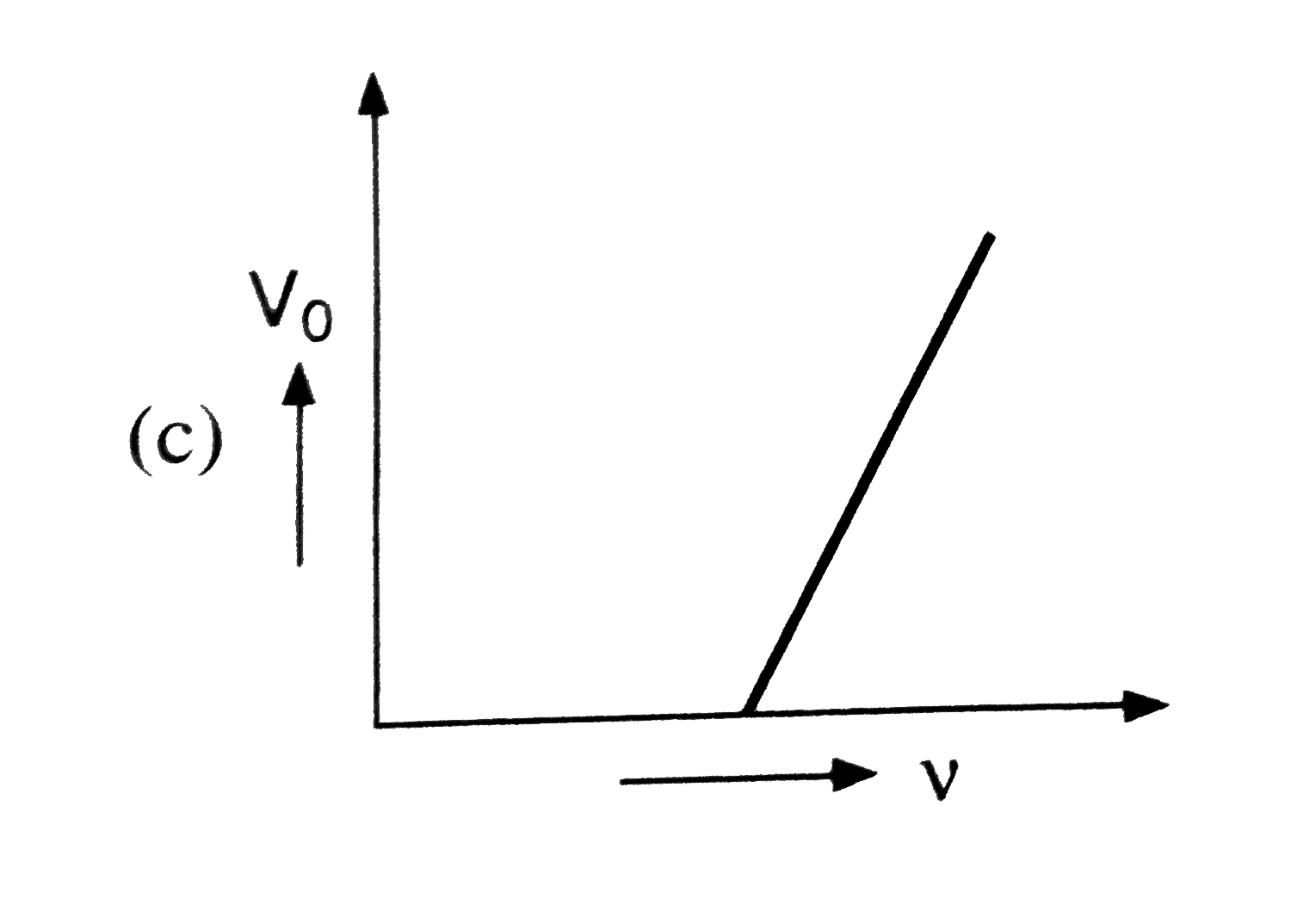 D
D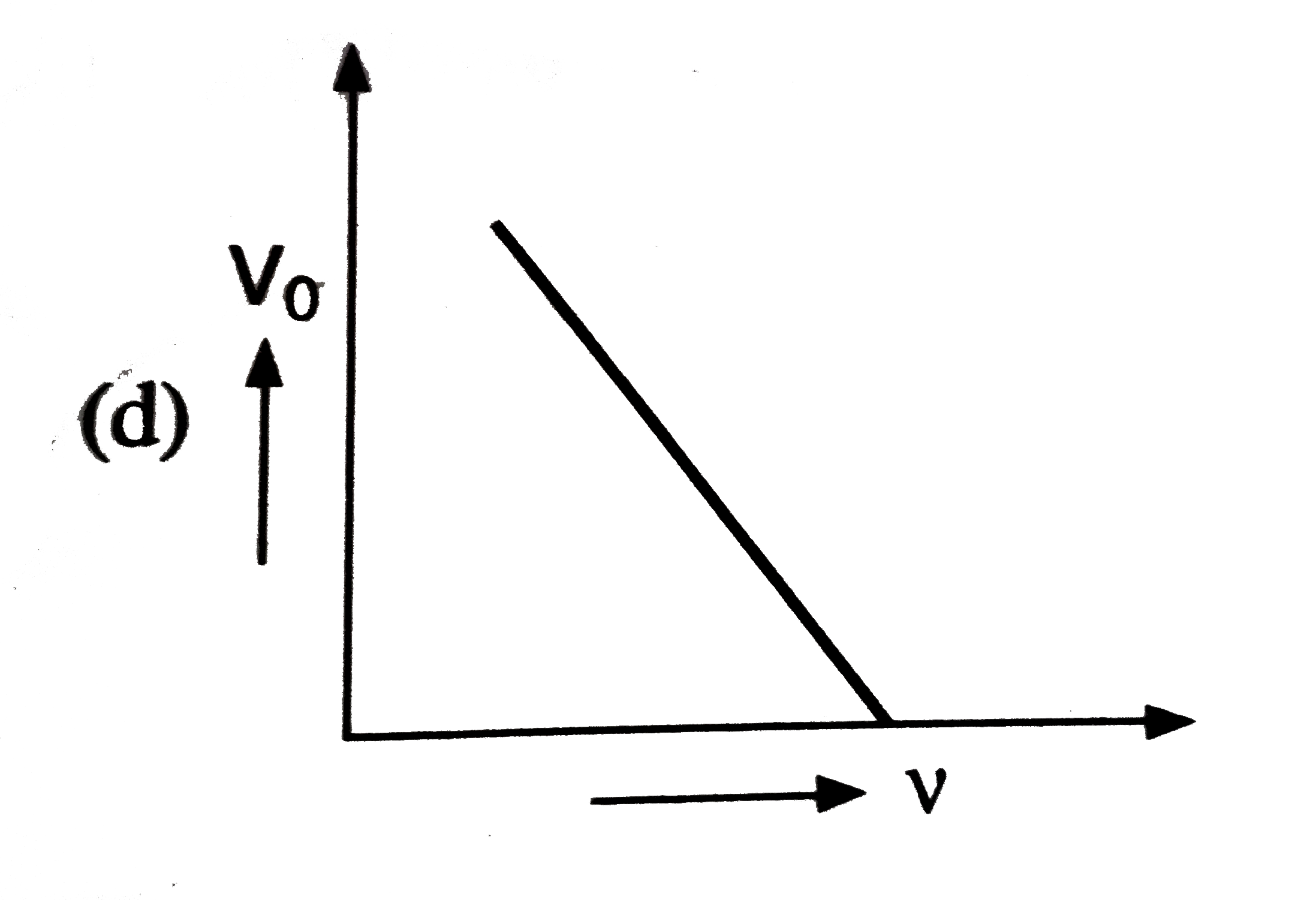
- Question 3 - Select One
The magnitude of stopping potential for the photoelectric effect is
Adirectly proportional to the intensity of incident light.Binversely proportional to the intensity of incident light.Cdirectly proportional to the frequency of incident light.Dinversely proportional to the frequency of incident light.
Define the term 'stopping potential' in relation to photoelectric effect.
View SolutionDraw and explain the graph showing the variation of stopping potential with frequency of incident radiation in relation to photoelectric effect.
View SolutionWhat is the effect of the intensity of incident radiation on the photoelectric current, for a given emitter material and p.d across the photoelectric cell ?
View SolutionState how in a photo-cell, the work function of the metal influence the kinetic energy of the emitted electrons.
(a) If the intensity of the incident radiation is doubled, what change occur in (i) the stopping potential and (ii) in photoelectric current?
(b) If the frequency of the incident radiation is doubled, what changes occur in the (i) stopping potential and (ii) photoelectric current.View SolutionThe photoelectric work function of the emitter of a photocell is 3.63 eV . The frequency of incident light radiation if the stopping potential of the emitter is 3 volt , is
View Solution

